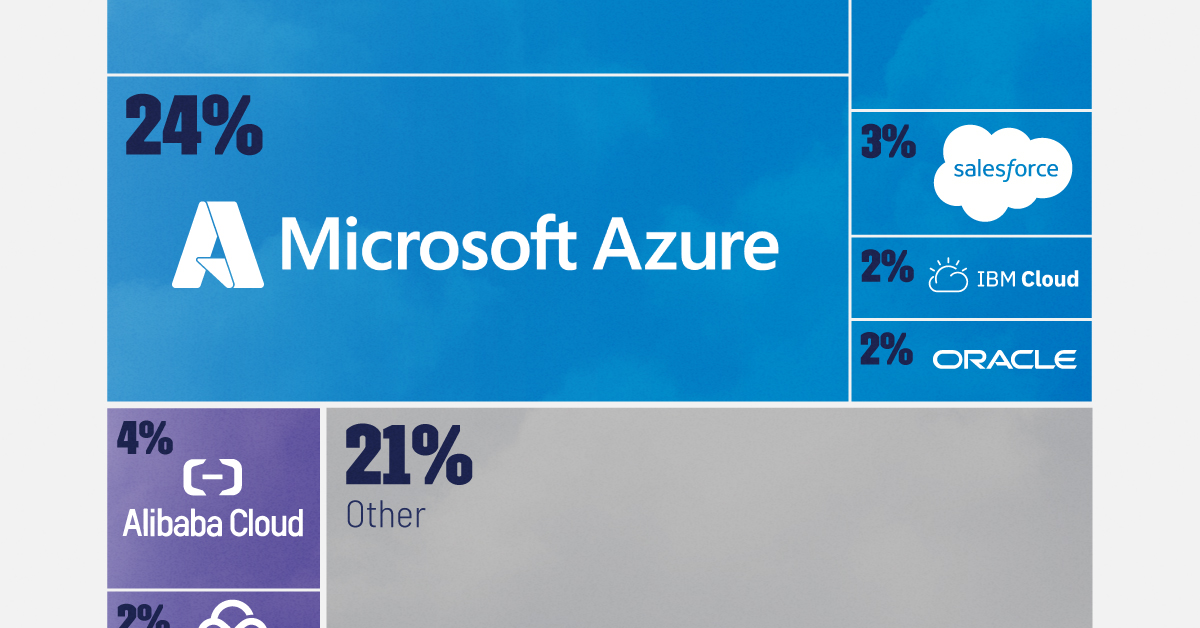
Key Takeaways:
The cloud computing industry has experienced a significant transformation in recent years. The emergence of various powerhouse players has revolutionized the way businesses operate and leverage technology. In this article, we will explore how these major players are contributing to the advancement of cloud computing and driving the industry forward.
The Rise of Cloud Computing
In order to understand the impact of these powerhouse players, it is essential to first acknowledge the rise of cloud computing itself. Cloud computing refers to the provision of on-demand computing resources, including storage, servers, and applications, over the internet. This technology has fundamentally changed the way businesses manage their IT infrastructure.
One of the key advantages of cloud computing is its scalability. Businesses can easily scale their resources up or down based on their specific needs, without the need for significant upfront investments. This flexibility allows organizations to be more agile and responsive to market dynamics.
Another significant benefit of cloud computing is cost savings. By shifting from traditional on-premise infrastructure to cloud-based services, businesses can reduce capital expenditures and operational costs. In addition, cloud computing eliminates the need for organizations to maintain and upgrade their own hardware and software, leading to further savings.
Pioneers in the Cloud Computing Industry
While there are several players impacting the cloud computing landscape, a few stand out as the frontrunners in driving innovation and facilitating transformation.
1. Amazon Web Services (AWS)
Amazon Web Services, commonly known as AWS, is the leader in the cloud computing market. Launched in 2006, AWS offers a comprehensive suite of cloud services designed to empower businesses of all sizes. From computing power to storage solutions, AWS provides a range of reliable and scalable options.
One of the flagship services offered by AWS is Amazon Elastic Compute Cloud (EC2). This service enables businesses to rent virtual servers and run their applications in the cloud. With EC2, organizations can quickly scale their compute resources based on demand, ensuring optimal performance and cost-efficiency.
In addition to EC2, AWS provides various other services including Amazon Simple Storage Service (S3), which offers low-cost and highly durable storage options, and Amazon RDS, a managed database service. These offerings cater to different business needs, empowering organizations across various industries to leverage the advantages of cloud computing.
2. Microsoft Azure
As a prominent player in the tech industry, Microsoft’s entry into the cloud computing market has made a significant impact. Microsoft Azure, the cloud computing platform offered by Microsoft, provides a wide range of services and solutions to support modern businesses.
Azure offers infrastructure-as-a-service (IaaS), platform-as-a-service (PaaS), and software-as-a-service (SaaS) capabilities. This comprehensive approach allows organizations to choose the level of service that suits their requirements. Businesses can migrate their existing on-premise applications to Azure, utilize Azure’s pre-built services, or even build their own solutions on the platform.
Moreover, Azure is known for its emphasis on security and compliance. With its robust security features and certifications, Microsoft Azure ensures that businesses’ data and applications are protected against modern cyber threats.
3. Google Cloud Platform (GCP)
Google Cloud Platform (GCP) is another heavyweight in the cloud computing industry. Powered by Google’s vast infrastructure and expertise, GCP provides a dynamic and comprehensive cloud computing environment.
GCP offers services across various domains, including compute, storage, networking, and machine learning. Its powerful infrastructure allows organizations to process large amounts of data, build advanced analytics models, and create scalable applications.
One of the unique offerings of GCP is Google Kubernetes Engine (GKE). GKE democratizes container management at scale, making it easier for businesses to deploy and manage their containerized applications. This service enables organizations to focus on application development rather than infrastructure management.
Driving Innovation and Advancement
The continuous innovation and competition among these powerhouse players have been instrumental in advancing cloud computing technology. Their investments in research and development have paved the way for new services, features, and tools that enhance user experience and make cloud computing more accessible to businesses of all sizes.
Artificial intelligence (AI) and machine learning (ML) are two areas where significant advancements have been made. Cloud providers offer pre-trained AI models, application programming interfaces (APIs), and development platforms to facilitate the development and integration of AI-powered applications. This enables businesses to harness the power of AI without extensive expertise in the field.
Another area of focus for the industry leaders is data analytics. With the ever-increasing volume of data generated, efficient processing and analysis tools are crucial. Cloud providers offer managed data analytics platforms that enable organizations to derive valuable insights from their data and make data-driven decisions.
FAQs
Q: What is cloud computing?
Q: How can cloud computing benefit businesses?
Q: Which are the major cloud computing providers?
Q: What are some advantages of cloud computing?
Conclusion
The cloud computing industry has been reshaped and revolutionized by the entry of powerhouse players like Amazon Web Services, Microsoft Azure, and Google Cloud Platform. Through their comprehensive offerings and continuous innovation, these companies have created an environment where businesses can leverage the advantages of cloud computing in a scalable, reliable, and cost-effective manner.
The future of cloud computing holds immense potential as these players drive further advancements. As more businesses incorporate cloud-based solutions, the industry will continue to evolve, undoubtedly leading to new possibilities and opportunities across various sectors.
Source: insidertechno.com